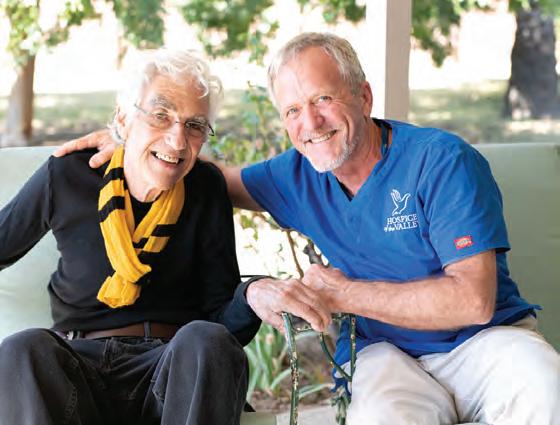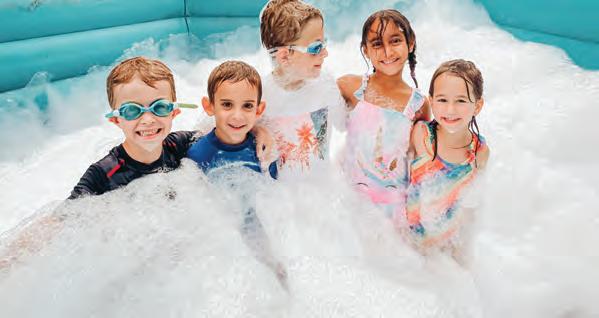
2 minute read
ADVICE FOR AGING SKIN
by jewishaz
is a dermatologist practicing in Arizona for more than 30 years. Originally from Manhattan, N.Y., Brown knew he wanted to be a doctor in high school when he participated in a program in Washington through the 92nd St. Y (Young Men’s and Young Women’s Hebrew Association). Through that program, he helped children from the Yakima Nation and was shocked by their state of living and lack of basic medical care. During that pivotal summer, he knew that he must

Advertisement
He became fascinated with dermatology during his post-medical school training. Brown loved the visual nature of the specialty and how it encompasses a wide range of medical and surgical diseases in patients ranging from children to the elderly.
These days my focus is primarily on skin cancer detection and treatment; finding and treating precancerous keratoses, carcinomas and melanomas. However, I offer a wide range of services and my office treats inflammatory skin diseases, psoriasis, eczema, seborrheic dermatitis, rosacea, acne, warts, mole checks and more.
Individually and uniquely. All patients are encouraged to have full-body skin exams regardless of their chief complaint, as many silent diseases and cancers are detected this way.
I also saw all my patients in person during COVID-19 because diagnosing skin cancer and most other conditions does not lend itself to telemedicine. Many melanomas and other cancers were detected in the office that would have been missed by not examining the patients in person.
What is the most important thing you tell seniors about skincare?
Aging skin needs a lot of moisturizing. Because the climate here is so dry, and elderly skin has a decreased ability to retain moisture, it is very important to moisturize, especially after bathing. Folks moving here from other states are amazed at how dry their skin is due to the low humidity. I favor Cerave, Cetaphil and Eucerin brands and Dove is an excellent non-drying cleanser. Of course, using a high SPF sunscreen is essential for protection from the damaging ultraviolet rays outdoors.
What advice do you have for seniors on care for aging skin?
Skin cancer is rampant in Arizona due to our endless sunny days. We are in one of the worst locations in the world for skin cancer and melanoma. Many seniors retire here from colder, cloudy climates. They don’t realize that they must protect their skin from damage by using a high SPF sunscreen every time they go out — to golf, play tennis, swim, walk the dog etc. — and reapply it every two hours or so. People with skin cancer tell me every day that they are never in the sun and don’t realize that every time they go outdoors they are in the sun. All that brief exposure adds up over time.
What skin ailments do you most see pertaining to seniors?
Skin cancers like basal and squamous cell carcinomas, melanomas, precancerous actinic keratosis; harmless but dark worrisome growths called seborrheic keratosis; dry skin and itching, eczema, flaky facial and scalp rashes called seborrheic dermatitis and rosacea.
What’s your favorite thing about what you do?
I enjoy making people happy by taking care of their skin conditions. Also, detecting melanomas in the earliest stages when they are curable, detecting other skin cancers when they are small, subtle and easier to treat; and diagnosing and treating unusual rashes.
What do you wish everyone knew about your job?
That dermatology is not just cosmetic procedures and treating acne. It’s a very academic specialty and requires diagnosing and treating a wide range of complex and serious skin rashes, as well as skin cancers.
What ways do you bring Judaism into your work?


I’ve been taught the core tenets of Judaism are compassion, service and mitzvah. Life is about giving good deeds with kindness, dignity and respect. I do not overbook my schedule so I can spend the time that is needed or even extra time if the situation demands it. JN









